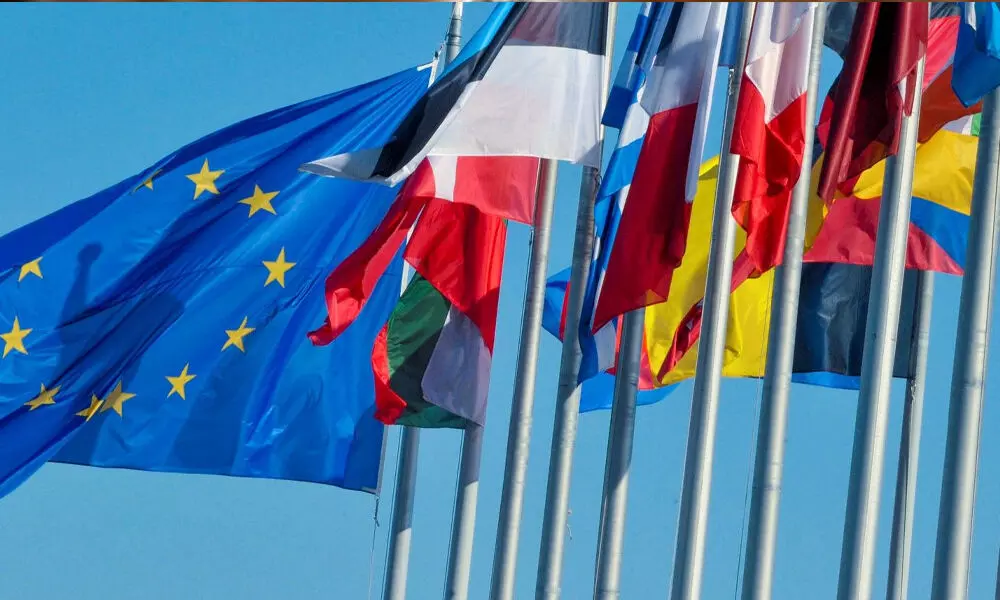Leaderless Europe is all process, little substance
image for illustrative purpose

One of the most devastating quotes about the European Union is a rhetorical question Henry Kissinger allegedly asked when he was U.S. Secretary of State: "Who do I call when I want to speak to Europe?" There are too many possible answers for the bloc to be credible, he implied. How awkward that the EU has ever since kept adding more.
By one count, the EU now has 10 "presidents," possibly 11, depending on how you classify its various institutions. That's not including the 27 leaders of the member states — except whichever of them is currently holding the rotating presidency of the Council of the European Union.
If this diffusion of authority and accountability has long been an international joke, few Eurocrats admit to getting it. Instead, they prefer to keep focused on using their prodigious resources to make the situation more risible.
Take, for example, a year-long project that, after long delays, will finally launch on May 9: It's grandly called the "Conference on the Future of Europe." The branding is cunning because it stipulates that the EU has a future. Beyond that, nobody currently has the faintest idea what this conference will be or do.
There'll be lots of platforms, panels and forums, some immodestly called agoras to evoke ancient Athens. They'll be mostly online and, as usual, translated into many languages. This bustle is meant to approximate a sort of participatory democracy for the EU's nearly 450 million citizens.
But unlike the "Convention on the Future of Europe" (spot the difference?) that was established two decades ago in a vain attempt to adopt a European constitution, this Conference won't actually try to change anything. That's because the only mechanism for reform — amending the EU's treaties — has already been ruled out. Too messy and cumbersome, it is said.
In a more quintessential sense, the Conference may already have served its purpose: It's created additional presidents. For a fleeting moment, there were suggestions that it should be led by a European eminence grise — the names of former prime ministers were floated. Then everybody reverted to type. Months of infighting ensued that, as Kissinger put it in another famous quote, were "so vicious because stakes are so small."
Behold the solution: The Conference will be led by a joint presidency. It comprises Ursula von der Leyen of the European Commission, the bloc's civil service; David Sassoli of the European Parliament; and the president (currently Portugal) of the Council of the EU, the body in which member states are represented. There'll also be an Executive Board with three co-chairs and other notables.
This Kissinger syndrome follows the EU wherever it goes and causes endless embarrassment. The biggest controversy in Brussels last month was a protocol snafu during an official EU visit to Turkey. Its president, Recep Tayyip Erdogan, was hosting Von der Leyen and Charles Michel, the president of the European Council. Careful! Don't confuse that one with the aforesaid Council of the EU — Michel's refers to the regular gatherings of the 27 national leaders, a custom that was upgraded from a recurring meeting to a formal institution only in 2009. So it goes.
What happened next is best viewed on YouTube. The Turkish leader showed the two Europeans to the meeting room, where a chair was waiting next to Erdogan's. Michel took it, and Von der Leyen was heard uttering "uhm," as she stood seatless. Eventually she placed herself on a nearby sofa. The incident is now known as #sofagate.
Everybody feels awful about it. Some folks in Ankara and Brussels argue that protocol saw Michel as analogous to a president and Von der Leyen to a prime minister, which determined the awkward seating. Von der Leyen and others retort that no such hierarchy exists in the EU's documents and the whole thing was sexist. Perhaps. But the root problem is Kissinger's question: Who should actually get the chair?
This European diffusion of accountability and obsession with process over substance exacts huge but disguised costs. It means nothing less than that the EU is incapable of meaningful reform. In acute emergencies — such as the euro or refugee crises, or the pandemic — the national leaders and Brussels scramble to improvise. But they don't actually fix problems and lose interest as soon as the crisis recedes.
As a result, the banking union and fiscal integration that were supposed to happen after the euro crisis have stalled. The migration regime, which was meant to be reformed after the refugee crisis, is in limbo. The EU vaccine rollout has been a shambles, although it is improving. The rule of law is disintegrating from Poland to Hungary, and the EU can't stop it. In foreign and defense policy, the bloc remains a paper tiger in a world of predator cats like Russia and China.
A year ago I opined that the EU is "losing its relevance so gradually that the decline isn't always visible." But the trained eye may get glimpses during the upcoming Conference. A cynic might hypothesize that the event is not really about the future of Europe at all.
As it happens, the opening speaker during the launch on Sunday will be French President Emmanuel Macron. He'll also hold the rotating presidency of the Council of the EU next year, when the Conference is due to wrap up. That'll be right in the middle of his campaign to be reelected. If Kissinger or others really are desperate for a phone number, they might try Paris. (Bloomberg)

